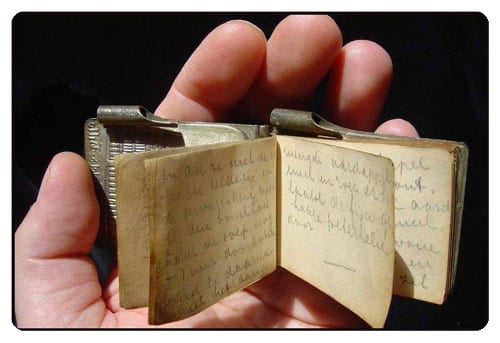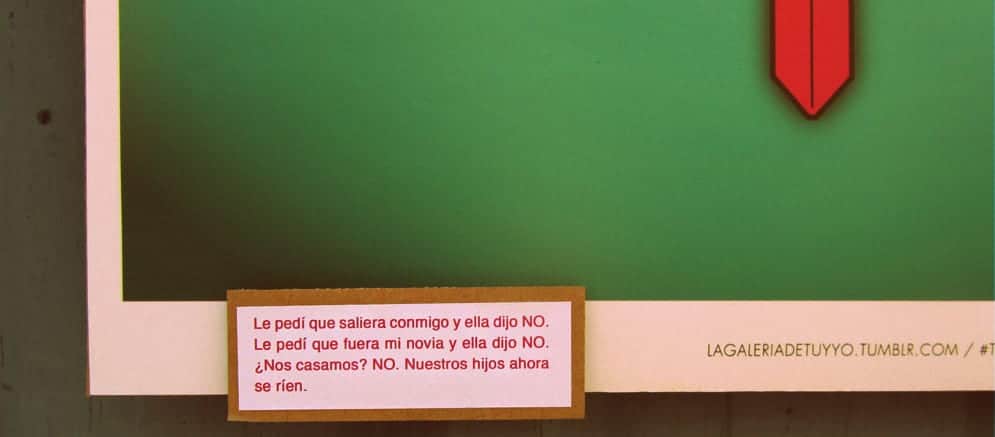
Short stories: few words for great stories.
Are you looking for examples of micro-stories? The times of the Internet have allowed short or micro literature to have become more important among those accelerated readers for whom retaining a one-line argument is not only a curious stimulus, but also the opportunity to create your own version of that hidden story. "Between the lines" or, in this case, words.
This is the micro-story, a narrative genre perhaps somewhat undervalued by the masses that encompasses a long history cemented by authors such as Cortázar or Augusto Monterroso, this last cornerstone of the genre thanks to his micro The Dinosaur, one of those considered as best short stories ever.
But before we see them, all the selected ones, we are going to answer a series of typical and frequent questions when we refer to micro-stories. If you are interested in the subject, do not hesitate to continue reading.
Will you accompany me in this brief (and at the same time profound) literary journey through the following 16 micro-stories for lovers of the brief?
What is a micro-story? Common features

The RAE defines the word microstory as follows:
Short story: From micro- and story. 1. m. Very short story.
And so short it is! It is the main characteristic of this narrative genre, which only contains a few lines in which the author has to express everything he wants and leave the reader excited, thoughtful or simply with the feeling of having read something good as well as brief. For this there is a popular saying which comes to express the same: "The good, if brief, twice good"
And although as we said before, it is a quite undervalued genre, the reality is quite different. It is very difficult to write and "say" at the same time in a few lines. While with the novel or the stories we have pages and pages to characterize a character or several, to create an environment, to develop the story itself, in the micro-story we have to say in a few lines, and achieve the most difficult of everything: that it transmits something to those who read us.
It seems like an easy task, but I myself tell you that it is not at all. It takes a lot of technique and of a long time of dedication to make a good micro-story like all those that we will see next. But first, we will tell you how to make a micro-story, what to look at, what words or expressions to avoid and how we can start with one.
How to make a micro-story?
As a general rule, a micro-story will have between 5 and 250 words, although we can always find exceptions, but they do not vary much.
To write a micro-story we have to forget to make a paragraph to explain something specific, so we will obviously eliminate what would be the entire development, for example, of a novel. We would go to key point or climax of our narration, in which there would be an unexpected turn that surprises the reader. In this way, we will of course have to forget to describe excessively. This way of writing will help us to find the right word, in this case the ideal descriptive adjectives, to say a lot with little.
By having the words super counted, what we will try is to give great importance to the choice of title. It cannot be just any title, but we will try to make those words in the title help complete our micro-story and make it even more meaningful if possible.
And of course, if there are less words in the micro-story, we will also try to play with the silences y punctuation marks. For example, some ellipsis depending on which part of the text we place them they can say much more than a complete sentence.
As we said before, making a good micro-story is a matter of acquiring the technique as it is done over and over again. For this reason, and because the vocabulary of the little ones is not yet fully developed, it is common to see in elementary books asking children to write a short poetry or micro-story about something. With this technique we try to get the little ones to describe something (an object, an event, etc.), with the few words they still know without having to say much.

10 short stories for lovers of short literature

The dinosaurby Augusto Monterroso
When he woke up, the dinosaur was still there.
Quality and Quantity, by Alejandro Jodorowsky
He did not fall in love with her, but with her shadow. He was going to visit her at dawn, when his beloved was longest
A dream, by Jorge Luis Borges
In a deserted part of Iran there is a not very tall stone tower, without a door or a window. In the only room (whose floor is dirt and is shaped like a circle) there is a wooden table and a bench. In that circular cell, a man who looks like me writes in characters that I do not understand a long poem about a man who in another circular cell writes a poem about a man who in another circular cell ... The process has no end and no one will be able to read what the prisoners write.
Love 77, by Julio Cortázar
And after doing everything they do, they get up, bathe, tighten, perfume, dress, and so they progressively go back to being what they are not.
The letter, by Luis Mateo Díez
Every morning I come to the office, sit down, turn on the lamp, open the briefcase and, before starting the daily task, I write a line in the long letter where, for fourteen years, I have thoroughly explained the reasons for my suicide.
Curfew, by Omar Lara
"Stay," I told him.
And I touched her.
Bucket and shovel, by Carmela Greciet

With the suns at the end of March, Mom was encouraged to lower her suitcases with summer clothes from the attics. He took out t-shirts, caps, shorts, sandals ..., and clutching his bucket and shovel, he also took out my little brother, Jaime, who had forgotten us.
It rained all April and all May.
Fantasma, by Patricia Esteban Erlés
The man I loved has turned into a ghost. I like to put a lot of fabric softener on it, steam it, and use it as a bottom sheet on nights I have a promising date.
The happiness of living, by Leopoldo Lugones
Shortly before the prayer in the garden, a very sad man who had gone to see Jesus was talking with Philip, while the Master finished praying.
"I am the risen Naim," said the man. Before my death, I rejoiced in wine, hung out with women, partied with my friends, lavished jewelry, and played music. Only child, my widowed mother's fortune was mine alone. Now none of that I can; my life is a wasteland. What should I attribute it to?
"It is that when the Master resurrects someone, he assumes all their sins," the Apostle replied. It is as if that one were born again in the purity of the infant ...
–I thought so and that's why I'm coming.
- What could you ask him, having given your life back?
"Give me back my sins," the man sighed.
I take advantage of the last position to share one of my first micro-stories, since despite being assiduous to the brief, his stories and stories at the time of writing had not yet put me with this genre. I hope you like it:
He arrived with the tie wrong.
She pretended to continue reading.
A pink elephant ate in the living room. #micro #literature #story #micro-story pic.twitter.com/hAqNNGByu7- Alberto Piernas (@AlbertoPiernas) April 9, 2017
Other famous short stories
Here are some more micro-stories that have been awarded or known at the time and some by not so well-known authors. We hope you like them:
Talked and talked, by Max-Aub
He talked, and he talked, and he talked, and he talked, and he talked, and he talked, and he talked. And come talk. I am a woman of my house. But that fat maid was just talking and talking and talking. Wherever I was, I would come and start talking. He talked about everything and anything, the same did not matter to him. Fire her for that? It would have had to pay three months. Besides, he would have been very capable of giving me the evil eye. Even in the bathroom: what if this, what if that, what if beyond. I put the towel in his mouth to make him shut up. He did not die of it, but of not speaking: the words burst inside him.
Letter from the lover, by Juan José Millás
There are novels that, even without being long, cannot really start until page 50 or 60. The same thing happens to some lives. That is why I have not killed myself before, Your Honor.
The apple, by Ana María Shua
The arrow fired by William Tell's precise crossbow splits the apple that is about to fall on Newton's head in two. Eve takes one half and offers the other to her consort to the serpent's delight. This is how the law of gravity is never formulated.
Threats, by William Ospina
"I will devour you," said the panther.
"Worse for you," said the sword.
The Truth About Sancho Panza, by Franz Kafka
Sancho Panza, who otherwise never bragged about it, managed, over the years, by composing a number of chivalric and bandit novels, at dusk and night, to separate to such a point of yes to his demon, to whom he later gave the name of Don Quixote, that he launched himself irrepressible into the wildest adventures, which, however, for lack of a predetermined object, and that precisely should have been Sancho Panza, did not harm him. no one.
Sancho Panza, a free man, followed Don Quixote impassively, perhaps because of a certain sense of responsibility, in his wanderings, thus achieving a great and useful recreation until his end.
The glasses, by Matías García Megías
I have glasses to see truths. Since I'm not in the habit, I never use them.
Just once…
My wife slept next to me.
Putting the glasses on, I looked at her.
The skeleton skull lying under the sheets snoring beside me, next to me.
The round bone on the pillow had my wife's hair, with my wife's curlers.
The gaunt teeth that gnawed at the air with each snore had my wife's platinum prosthesis.
I stroked the hair and felt the bone, trying not to enter the eye sockets: there was no doubt, that was my wife.
I put down my glasses, got up, and walked around until sleep gave me up and I went back to bed.
Since then, I think a lot about the things of life and death.
I love my wife, but if I were younger I would become a monk.
These 16 short stories for lovers of short literature they serve as the basis for those subliminally hidden stories in this smaller, but not less, version of literature.
Hello Alberto.
Thanks for this article because I am a fan of micro stories. In fact, thanks to a creative writing workshop that I started going to in 2004 or 2005 and that I followed for several years, I started writing them and until today.
Regarding the one I like the most, I have doubts among several. If I have to choose, I'll stick with "La carta", by Luis Mateo Díez.
A hug from Oviedo and have a good weekend.
As always, thanks for your opinion Alberto. Hugs from Alicante.
Once again I delight in what you write.
Hehehehe, you do what you can 😉 Thanks Antonio! Hugs.
Hello Alberto. The micro-stories carry the synthetic idea of what a long story could be. I wanted to know if there are no rules to write it, for example, extension, although I don't think so, as I see different extensions. I like this type of writing, I am going to practice it.
The micro-story that I like the most is: Amor 77, by Julio Cortázar.
Cordially
Carmen M. Jimenez
Hi carmen.
The micro-story is, as you say, a synthetic version of the story, which in turn has somewhat different rules. The micro-story is characterized by its short length (there are no limits but it should not exceed a paragraph) and the "silences" of this condensed story.
Although in your case I think that practicing any type of writing will be good, if you get a great micro-story and if it is a story the same.
Regarding steps to write a story, I leave you this article published a few months ago in case it helps you:
http://www.actualidadliteratura.com/4-consejos-para-escribir-tu-primer-cuento/
A greeting.
The story of Patricia Esteban Eriés is a variation on the splendid story of the Mexican writer Juan José Arreola, «The woman I loved has become a ghost. I am the place of the apparitions »
Hello, José Antonio.
I didn't know that Patricia Esteban Erlés's micro-story is a version. Juan José Arreola sounds familiar to me and I didn't know his short story. You're right, it's very good. Thanks for sharing.
A literary greeting from Oviedo.
Hello Alberto. Interesting publication that you have made.
Monterroso's is perhaps the best known and used as an example of how a micro-story is built, but in your selection I prefer La Carta by Luis Mateo Díaz, I think it's great. And secondly, I also really like Quality and Quantity, by Alejandro Jodorowsky.
Kisses from Madrid
Hello Cristina.
You agree with me, although I would take several (five or six) of the texts. And the one in Monterroso is, without a doubt, the most famous. Also for me, Jodorowsky's is very good.
A literary greeting from Oviedo.
"I sell baby shoes, unused" - Ernest Hemingway
Hello, El Graffo.
I had already read long ago, I don't remember where, that Hemingway micro-story. Surely many people would be surprised to learn that friend Ernest wrote it (everyone associates it with the novel).
It strikes me as a terrific micro-story with a tremendous depth charge. What lies beyond that line is clear.
A greeting.
Sure you wanted to write Jorge Luis Borges, but the autocorrector.
Dear Alberto. I was reading the recommended stories, and I stopped at two; El Sur by Borges and La noche face up, by Cortázar. Cortázar's night face up, 'did not leave me indifferent', is told with simplicity and also with depth. What a domain of Cortázar. After reading it, I interpreted that it is a struggle for life before death with the glimpses of consciousness. The motorcyclist was aware of reality at times. But plunging into an unknown life experience, related to a distant past, makes us think that the motorcyclist had knowledge about Mesoamerican cultures, or that he had a clairvoyant dream experience about the offer that the Aztecs made to their gods by sacrificing a prisoner in the Main temple. That prisoner is him, the motorcyclist who clings to life, fighting against the oppressive yoke of death. That trip through the tunnel and then under the stars and the imminence of death, which will be caused with a stone or obsidian knife, makes us shudder. We might think that this citizen was a spiritual émigré. According to Cortázar, even if it is a distant past and we are different from those of that past, it can be "that mirror in which to look at our faces." It is a metaphor for that cultural syncretism that we are, that is how we reflect ourselves in a mirror.
Cordially
Carmen
La Noche Boca Arriba is great 🙂 I'm glad you liked Carmen's recommendations. All the best.
Correction.
It is a metaphor for that cultural syncretism that we are, that is how we reflect ourselves in its mirror.
Thank you
How nice to read between the lines and imagine the pen of the one who wrote.
Thanks for sharing
Next to my house lives a man who cannot read or write, but has a beautiful wife. These days, secretly from his wife, and to my anguish and concern, he decided to learn. I hear him spell, like a big child, on some pieces of paper that I always told her to throw away, but the very stupid woman left them carelessly scattered in any part of the house; and I pray to God that I never learn.
Fart Querales. From the book «Urban Fables».
My teeth
My teeth on the sink cancel the appointment and tear tears that turn into bitter and convulsive crying. In front of the mirror I imagine you nervous in the mall.
Still wet, in front of the cell phone, I don't have to wait long. It sounds, and your voice as a child calls me late. "This can not be! Find a boy your age! " I say to you. I hang up and smash my teeth and your soft adolescent voice against the wall.
I keep crying, wet.
Pedro Querales. From the book "Do you remember the cayenne I gave you?"
The butcher's light bulb
By the time it was Marco's turn, three of the five who were playing had already passed. The sound of the drum spinning — that was the only rule of the game: let everyone spin it before putting it on their head — reminded him of the gust of his bike when he hit the pedals backward. Marco had always liked to take risks: small, big or extreme, but always at risk. They handed him the weapon — neither heavy nor light, at that moment that is not perceived — and he hit the drum with force. He picked it up and placed it on his right temple. When he raised his head, he saw the lightbulb that badly illuminated the room with its yellowish light, and he remembered when he stole the lightbulb from the house from the butcher. This is how this vice of risk and danger began. "Don't you steal the light bulb from the butcher!" his friends told him. "Yes," Marco replied. Very late at night, they gathered in front of the butcher's house. Marco came out of the shadows and, stealthily, went to the porch of the house. Dogs barked from inside. Marco stopped and waited. The dogs fell silent. Very carefully and slowly Marco opened the small iron gate, but it still creaked on its hinges. The dogs barked again. This time stronger and for longer. The signal of silence gave Marco the green light again. He stopped in front of the wooden door and looked down: "Welcome" said the carpet illuminated by the light that came through the lower crack of the door. And he could hear the voices of the butcher and his wife mingling with those on television. He took a deep breath and crossed himself. Then he saluted his fingers and loosened the light bulb. As it went out, the dogs barked again. Some even howled. He stopped and stayed that way, frozen and motionless like a living statue, for a long time. He finished pulling it out and dropped the red-hot bulb into the hammock that formed around his abdomen as the bottom edge of the flannel rose. He stepped back and came out on his back, with the light of the bulb in his smile and the trophy, already cold, in his hands.
The next day Marco had to go to the butcher to buy some ribs for his mother. The butcher was furious. All bloody yelled and cursed as they butchered a carcass hanging from the ceiling. "If I catch him I'll skin him" and plunge the sharp knife and rip the callous flesh. “I'm going to hunt him down! Yes, I'm going to hunt him down! That one comes back! But I'm going to be waiting for him. ”Then the situation became a challenge for Marco: the game of cat and mouse. Marco waited a reasonable time, fifteen or twenty days, and again stole the light bulb from the butcher. The next day he went to the butcher shop to see their reaction. And she heard him raging: “Damn thief! He stole my light bulb again! " he said to a customer as he hacked off a pig's head with an ax blow. They stayed that way until Marco got tired of stealing the light bulb from the butcher. And one day, at night, he left them all in a cardboard box by the door.
The four players, around the table, watched Marco expectantly. With the barrel resting on his temple, Marco saw the light bulb — and thought of the Babylon lottery, where the winner loses — and suddenly it went out.
Pedro Querales. From the book «Pink Sun»
There is no one here, just bread crumbs everywhere. I quickly picked them up so as not to delay my children's dinner.
Plagiarism
Dr. Benavente, a copyright specialist, was in Europe and the acquittal of our client depended on his almost pontifical opinion, a letter signed by him would weigh on the decision of the judges, his students at the university, so I took a risk and I forged the signature of the lawyer in the report that I wrote with which we won the trial. A case of plagiarism, won with a false document, what one is learning.
Ricardo Villanueva Meyer B.
The old professor—
In the cold artificial light, the professor's bald head gleamed like a winter moon.
The students, more attentive to the sporty evolutions of the flight of flies, ignored his logarithmic explanations.
The blackboard complained instead of the traces of the chalk pushed by the old hand of that man.
His jacket, stained with sadness, crumpled in a chair as old as he was.
When the bell rang they left without looking at him. Two tears crossed their faces mingling with the class dust.
«Your eyes playing with his while your lips played with mine» - Javier OW
When he woke up, she was still not there.
I had already heard that during the French Revolution, when someone was guillotined, the head, already detached from the body, still said a few words. But, in my case, it seems to me that I have said too many.
- Ay, ay, ay! - Someone said. "What's there?" Said another, approaching. Then the silence.
I especially like those of Luis Mateo Díez, Cortazar, Lugones, Max Aub, Millás and García Megías.
My favorite was Threats, by William Ospina, because this can be adapted to the society in which we live, since many times we want or do what can harm us the most, the sword will kill the panther before being able to devour it.
About William Ospina, this writer is Colombian and won the Rómulo Gallegos prize with his novel "El País de la Cinnamon", which is part of a trilogy about the conquest of the northern part of South America. Also, among his works the essays stand out and the novel "The year of the summer that never came" draws my attention, due to the context it deals with.
The micro story that I liked the most is La carta, by Luis Mateo Díez, since it has taken me some time to try to understand it, and because it makes a lot of sense, the writer gives a case of a life full of adversities in which a person You commonly feel burdened and sad, but you found an effective way to counteract those emotions to move on. I also liked it because as a young person and with the situation that one lives, sometimes one feels stressed and perhaps without wanting to continue what he is doing, but there is always a good reason to continue.
Luis Mateo Diez is a Spanish writer who has been a member of the Royal Spanish Academy (RAE) since 2001 with the position, or "l" chair. He is known for his novels and essays, and among his most notable works are The Fountain of Age, The Ruin of Heaven, Fables of Feeling.
Hello Alberto, I agree with you, I am also a big fan of micro-stories, and without a doubt, in my opinion, the best one is "La carta", although they are all very good.
Greetings from somewhere where, every morning I arrive at the office, sit down, turn on the lamp...